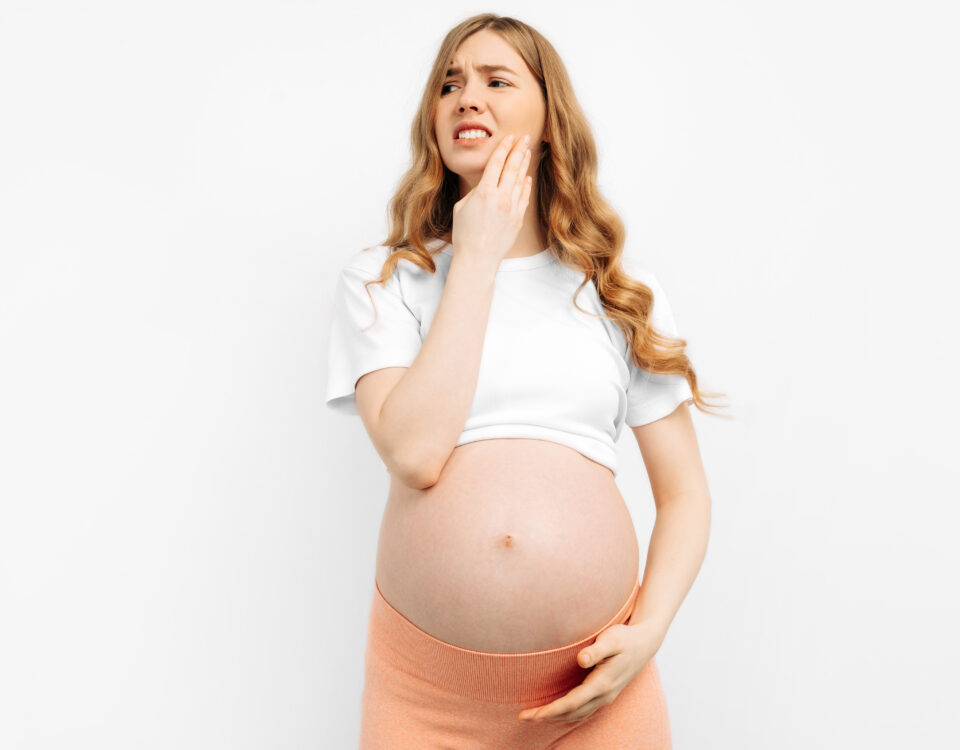Is Dental Care Safe During Pregnancy?

Bonding vs. Veneers, What’s Better?
May 11, 2022
How to Brush Your Teeth the Right Way: Tips for a Clean and Healthy Smile
May 25, 2022Is Dental Care Safe During Pregnancy?

Dental care is an important part of overall health, and it’s especially important during pregnancy. Many women are concerned about the safety of dental care during pregnancy, but as long as you take a few precautions, dental care can be safe and beneficial for both you and your baby. In this blog post, we will discuss the safety of dental care during pregnancy and offer some tips for ensuring a safe visit to the dentist!
The Importance of Dentistry During Pregnancy
It’s no secret that pregnancy can take a toll on your body, and your oral health is no exception. Pregnancy can cause a number of changes in your mouth, from an increase in cavities to gum disease. That’s why it’s so important to maintain good oral hygiene habits and visit the dentist regularly during pregnancy. Not only will this help keep your mouth healthy, but it will also help you avoid any complications that could arise from poor oral health.
Nearly 60 to 75% of pregnant women have gingivitis, an early stage of periodontal disease that occurs when the gums become red and swollen from inflammation that may be aggravated by changing hormones during pregnancy.
Dental Care and Pregnancy: The Risks
When it comes to your dental health during pregnancy, there are a few risks to be aware of. First, pregnant women are at an increased risk for gingivitis, a type of gum disease. Gingivitis is caused by plaque buildup on the teeth, and it can lead to inflammation, bleeding, and soreness in the gums. If left untreated, gingivitis can progress to periodontitis, a more serious form of gum disease that can damage the bone and connective tissue around the teeth.
Pregnant women are also at an increased risk for cavities. This is because pregnancy can cause a decrease in saliva production, which can lead to a buildup of plaque on the teeth. Additionally, many pregnant women crave sugary foods, which can also contribute to cavities.
How Your Dental Health Can Affect Baby
Your oral health during pregnancy is important not just for your own sake, but for your baby’s as well. Poor oral health has been linked to a number of complications in pregnancy, including preterm birth and low birth weight. Additionally, gum disease has been linked to an increased risk of preeclampsia. This is a serious condition that can lead to hypertension and other complications.
Tips for Maintaining Good Oral Hygiene During Pregnancy
There are a few simple things you can do to maintain good oral hygiene during pregnancy and reduce your risk of cavities and gum disease:
- First, be sure to brush your teeth twice a day with a fluoride toothpaste. Fluoride is a mineral that helps to strengthen the teeth and prevent cavities.
- Second, floss your teeth every day. This will help remove plaque and food particles from between the teeth, where a toothbrush can’t reach.
- Third, avoid sugary foods and drinks. If you do crave something sweet, be sure to brush your teeth afterwards.
- Fourth, visit the dentist regularly. Pregnant women may need more frequent visits to the dentist rather than the typical two cleaning visits per year.
Dental Treatments to Avoid During Pregnancy
There are a few dental treatments that should be avoided during pregnancy, as they may pose a risk to you or your baby. These treatments include:
- X-rays: Dental x-rays use a small amount of ionizing radiation, which can be harmful to the developing baby. If possible, wait until after your pregnancy to have any x-rays taken.
- Elective dental procedures: Any non-essential dental procedures, such as teeth whitening, should wait until after pregnancy. These procedures are not necessary for your oral health and can be postponed until after your baby is born.
- Local anesthesia: Local anesthesia, such as Novocaine, contains a small amount of epinephrine. This medication can cause heart palpitations and other side effects in pregnant women. If you require local anesthesia for a dental procedure, be sure to let your dentist know that you are pregnant.
- General anesthesia: General anesthesia should only be used in emergency situations during pregnancy, as it carries a small risk of complications. If you require general anesthesia for a dental procedure, be sure to let your dentist know that you are pregnant.
The Bottom Line
Your oral health is important during pregnancy. Be sure to brush and floss regularly, avoid sugary foods and drinks, and visit the dentist every six months for a cleaning. If you have any questions or concerns about your oral health during pregnancy, be sure to talk to your dentist.
Make an Appointment with Mountain Aire Dentistry
If you’re pregnant and looking for a dentist in the Broomfield area, we welcome you to make an appointment with us at Mountain Aire Dentistry. We value keeping you and your baby safe and healthy throughout your pregnancy and beyond. Contact us today to schedule an appointment.
When you visit our Broomfield dental office, your smile is our top priority. Our Dentists invite you to experience the difference a warm and caring team can provide for you and your family. Enjoy a unique and comfortable dental experience designed to bring a healthier and happier smile back into your life. We invite you to call or visit our Broomfield dental office and discover the exceptional difference we offer to those we serve.












